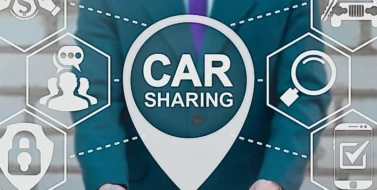Insurance companies deny car insurance claims after auto accidents for a number of valid reasons. However, they’ve also been known to deny, or attempt to deny, claims that are perfectly legitimate. If you’ve recently had an accident, and the insurer is denying the claim, a Chicago car accident attorney will be able to help you determine whether the insurance company’s denial is legitimate, or if it is part of a delaying tactic used to help protect their bottom line.

If a claim denial is unjustified, or in bad faith, your attorney will be able to help you file suit and bring them to court. However, even if the denial is based on legitimate limitations, there are several options available for you to pursue. You don’t simply have to take whatever scraps they are willing to hand out.
Table of Contents
Common Reasons for Denied Car Insurance Claims
Can car insurance deny a claim? Insurance companies try to minimize accident claims as a basic business practice. Reputable insurance companies do need to ensure that they are following the laws, however. There are several common reasons why an insurance company will deny a claim in good faith. These are:
- Disputed Liability
- Lack of Medical Evaluation
- Delayed Reporting
- Claim Exceeds Coverage
- Excluded Driver or Nonpayment
- Fraudulent Application/Claim
Disputed Liability
Disputed liability is when the insurance company shows proof of or presents the argument that the liability for an accident either doesn’t lie with their driver or is shared between both parties in the accident. If the insurance company believes you are entirely at fault, rather than the covered party, they will refuse to pay unless it is proven otherwise in court.
If they believe the liability to be shared, they will likely be reluctant to pay the full amount of the policy limits when they believe the burden should be shared with another insurer. Their primary goal in this instance will be to have a percentage of liability assigned or agreed upon so that the policy payout can be prorated accordingly.
A good example of disputed liability would be if you attempted to file a car insurance claim on your own insurance policy for a hit-and-run accident caused by someone else. Your insurance company could try to argue that their policy does not cover an accident caused by an unknown driver. You may need an experienced Chicago hit-and-run accident attorney to help you through the car insurance claim process if you find yourself in this situation.
Lack of Medical Evaluation
If you’ve been in a car accident, it’s important to seek medical evaluation or attention immediately. Some injuries may not present themselves right away, and you could end up doing damage to yourself before you even realize it. Another reason for seeking an immediate medical evaluation is that an insurance company may believe you are making a fraudulent car insurance claim if you didn’t seek medical attention immediately following the accident. They may believe you are attempting to cover an injury received later with your accident claim.
Delayed Reporting
Delaying the reporting of an accident can have the same effect as a lack of medical evaluation. Read your policy carefully to ensure that you’re reporting an accident within the required time frame. An accident reported too long after the event could be considered to be a fraudulent car insurance claim, and is more likely to be denied than an accident claim that was reported the day that the event took place.
Claim Exceeds Coverage
Some people drive vehicles that are significantly more valuable than the national average. An insurance company will only agree to pay the total of the policy limits unless the policyholder has an additional policy available. If the policy limit meets the legal requirements of the state and is less than the value of a damaged vehicle, the insurance company may choose to deny the remainder.
Excluded Driver or Nonpayment
If the driver of the at-fault vehicle is excluded from the policy, the insurance company is likely to deny the car insurance claim. Likewise, if the monthly payment for the insurance policy is current, the insurance company may deny it.
Fraudulent Application/Claim
If the insurance company comes across information during the course of their investigation of the accident claim that they believe may point to fraudulent behavior, they could deny the claim. For example, if they believe that the vehicle they’ve been contracted to insure had prior damage that wasn’t reported on the application, they may deny the claim. If their investigator takes photos of damage supposedly incurred in a recent accident, but there is well-established rust or other indicators that the damage may not have come from the accident being claimed, they may choose to deny the claim on those grounds as well.
What to Do After a Claim Denial
If you’ve already attempted to file a claim against the policy in question, and it’s been denied, you may need to sue an insurance company after a car accident. If you do end up needing to file suit, your Chicago car accident attorney will be able to help. Most will offer a free consultation and may even agree to take on your case in exchange for a portion of your winnings. This way, you don’t have the added worry about paying legal bills to hold the insurance company accountable. Your attorney will have experience dealing with insurance companies who don’t seem to want to pay, or want to drag their feet in the hopes that you’ll give up. He or she will be able to help you understand what to do if car insurance denies your claim. Knowing what to do when car insurance denies a claim can help you get the compensation you need to recover.
Most often, these claims end up with both parties agreeing upon a settlement outside of court, but if necessary, your attorney will take the fight into the courtroom to ensure that you are not being passed over for damages that you may qualify for. If an insurance company denies a seemingly valid claim, with little to no explanation why, it may indicate a bad faith denial. An insurance company that makes a denial in bad faith has broken the contract with their policyholder and could face legal trouble.





